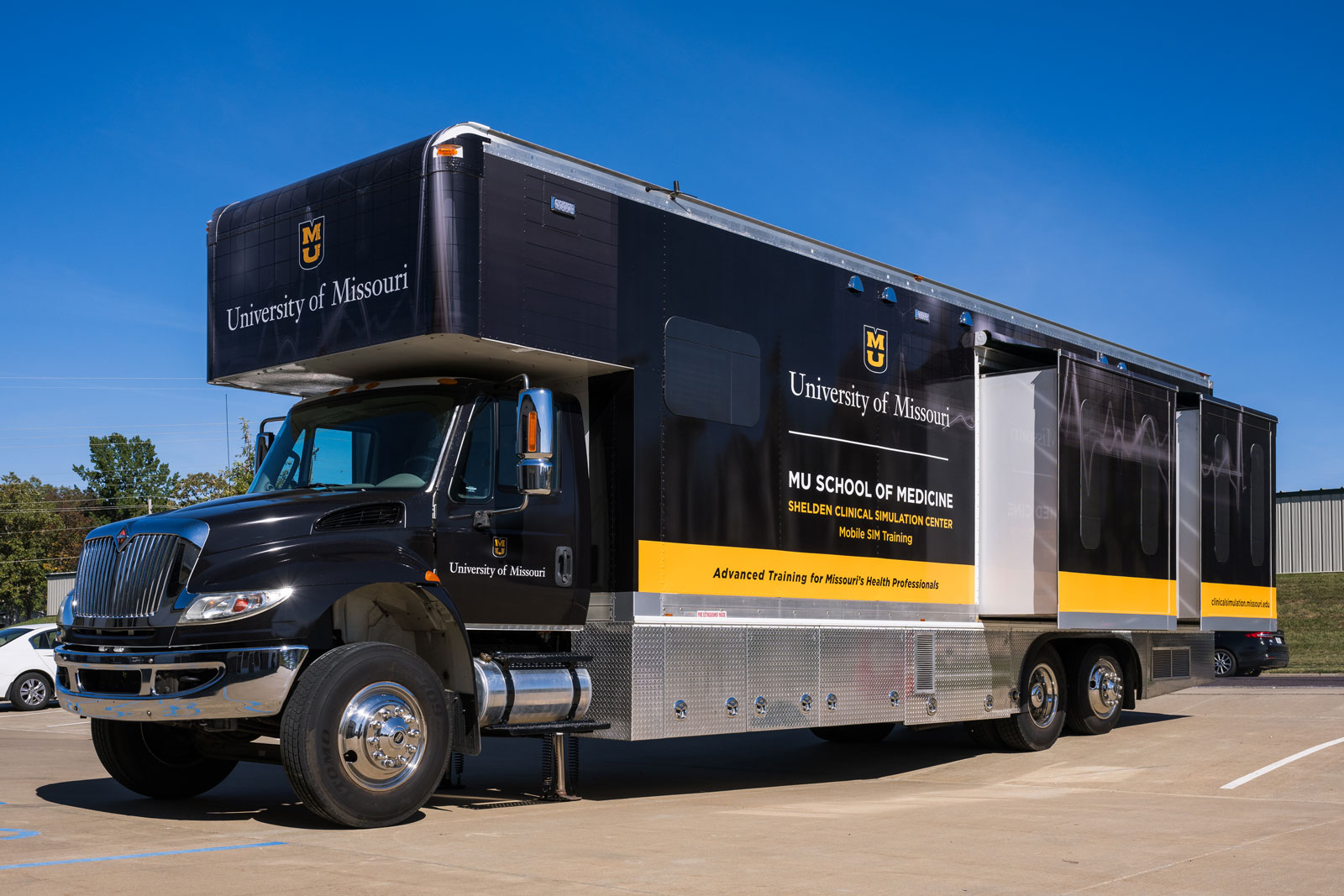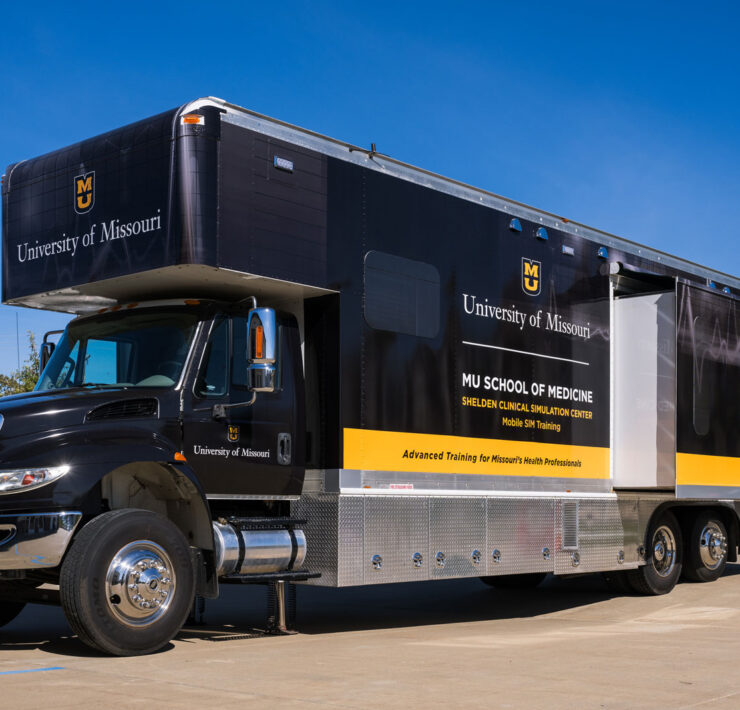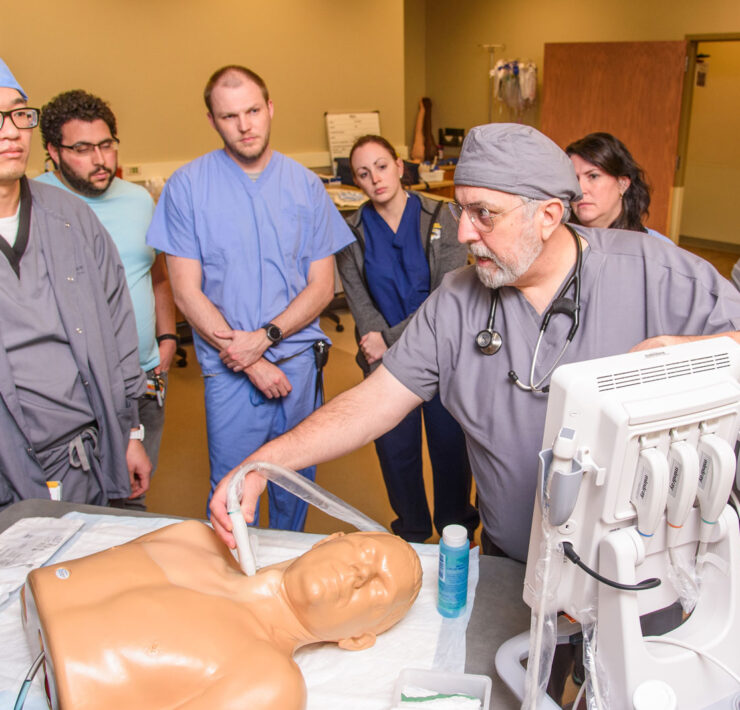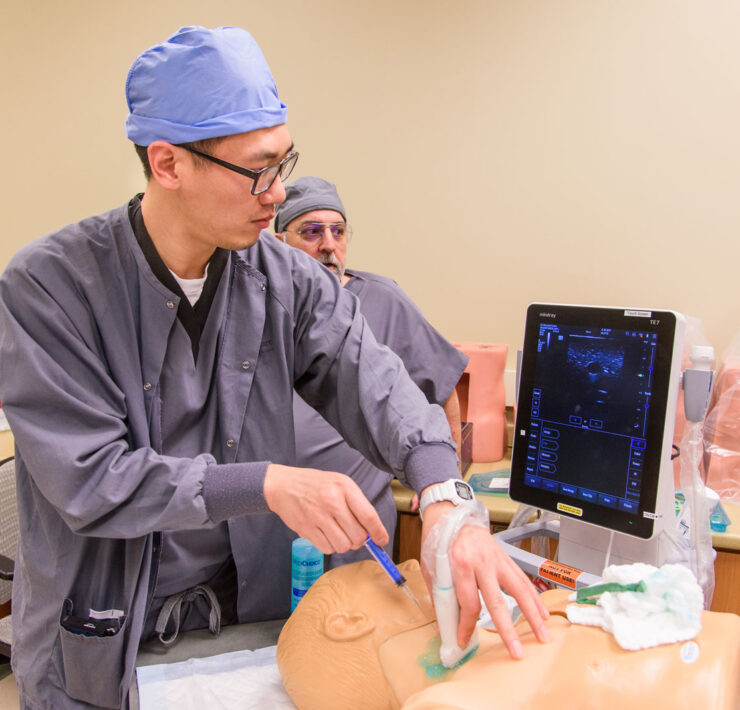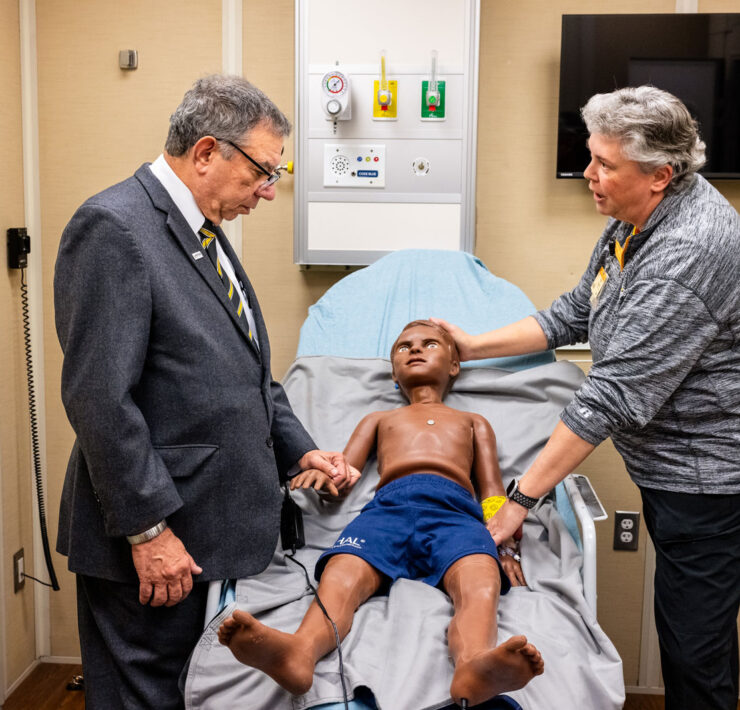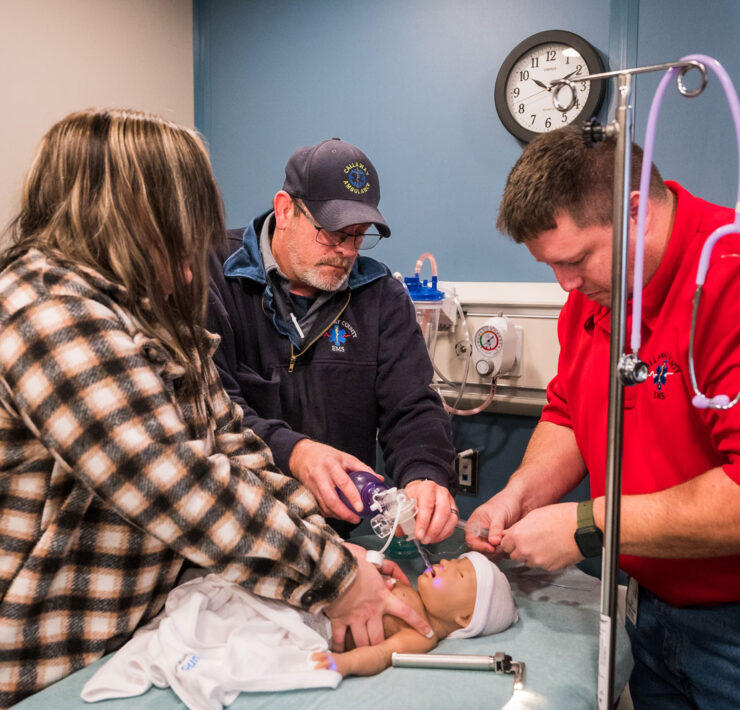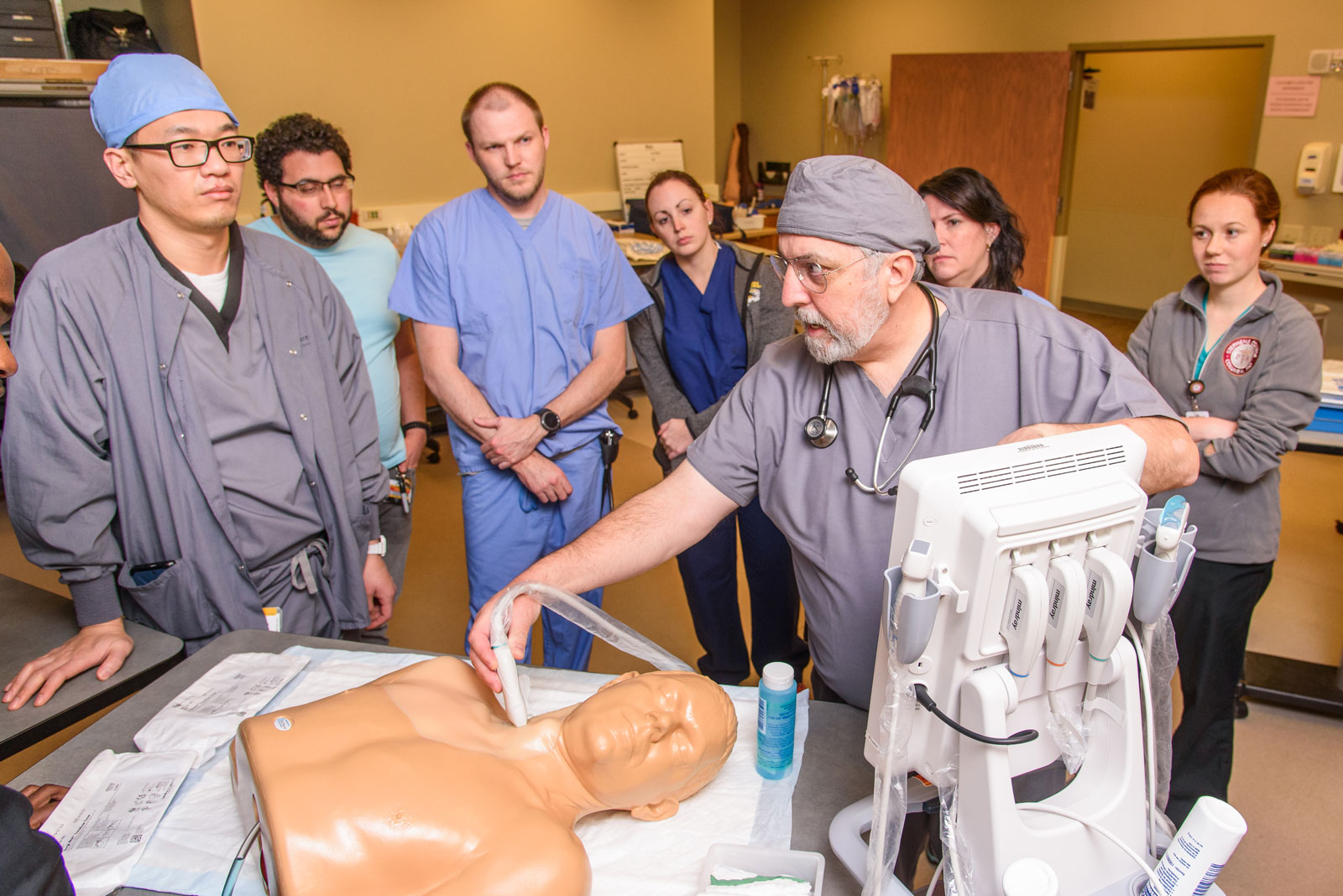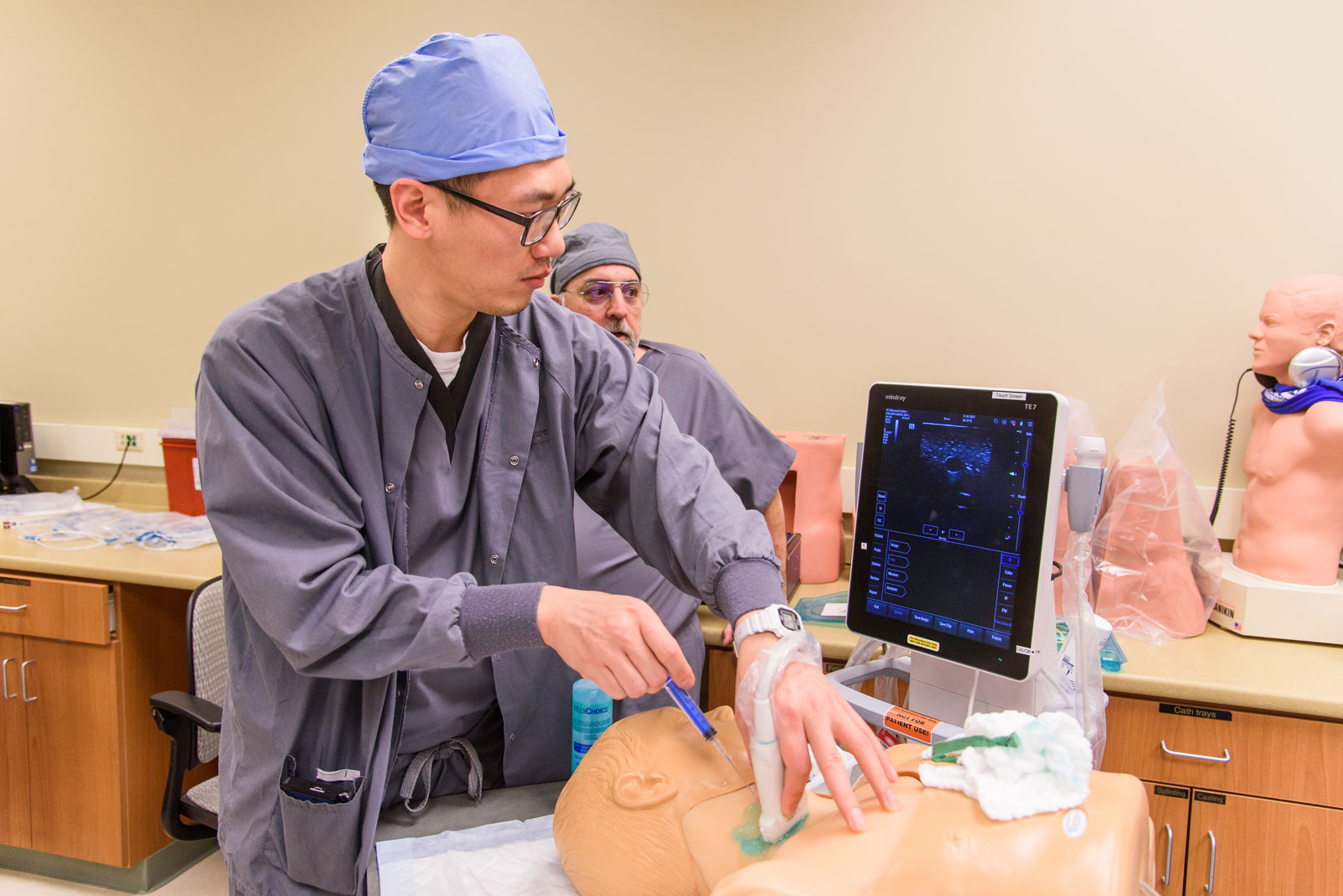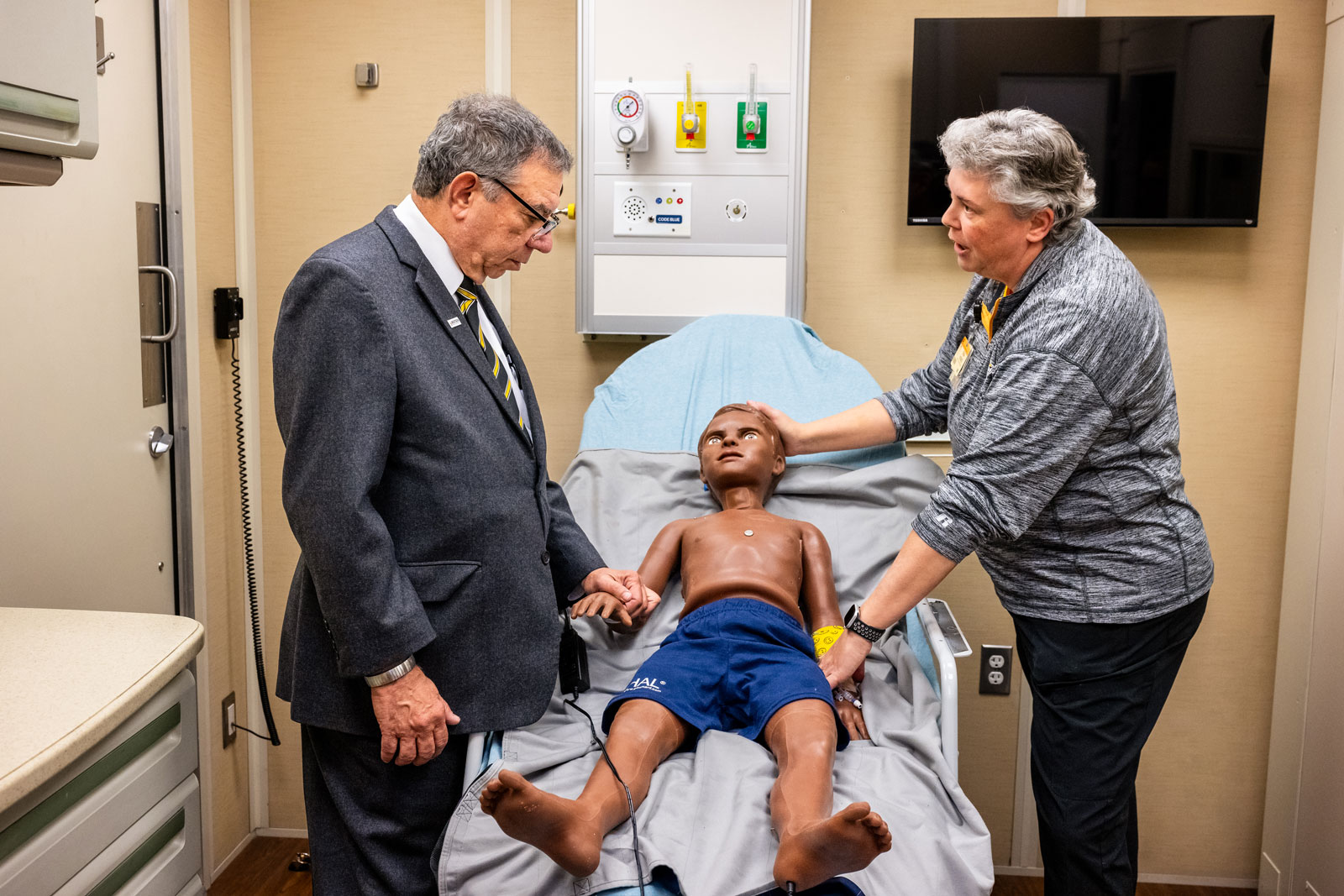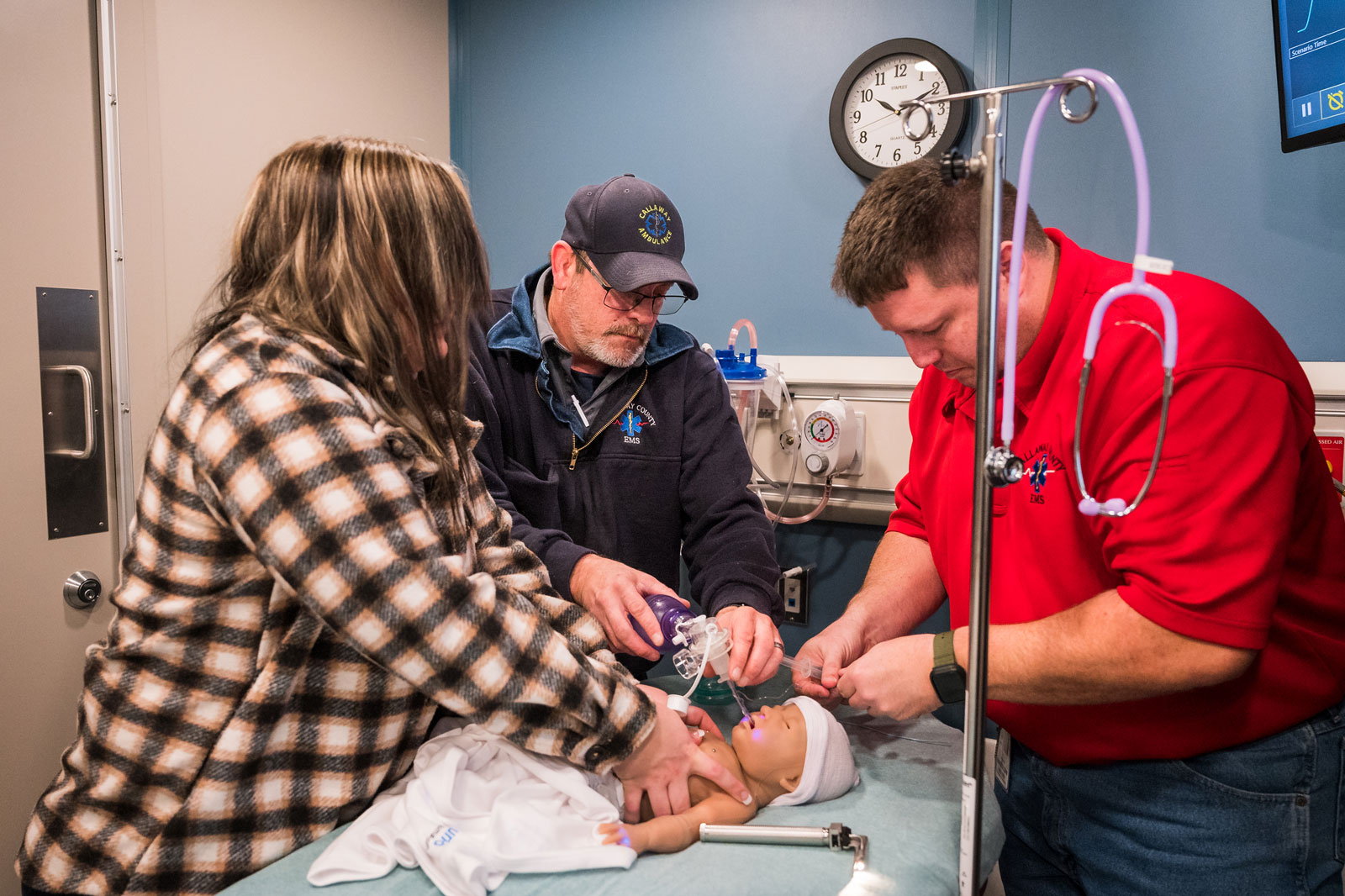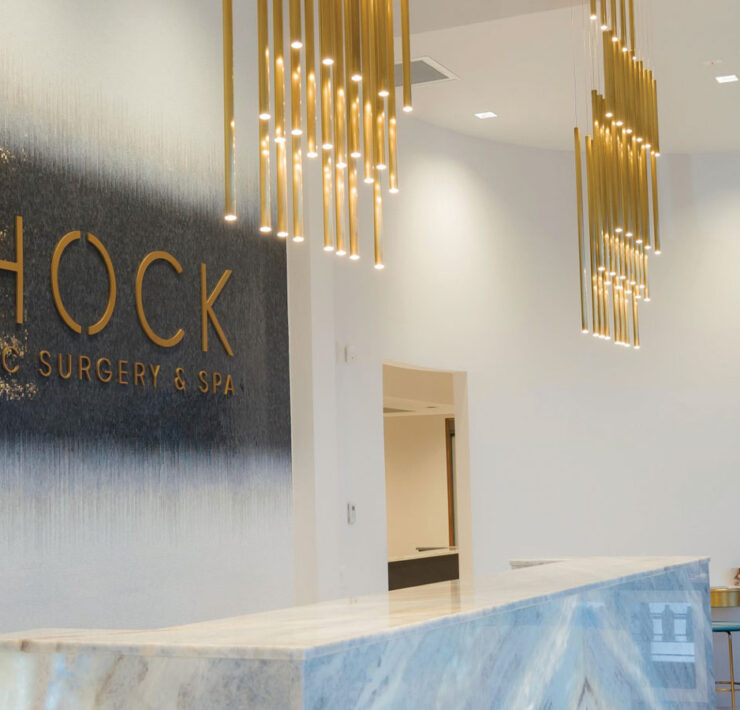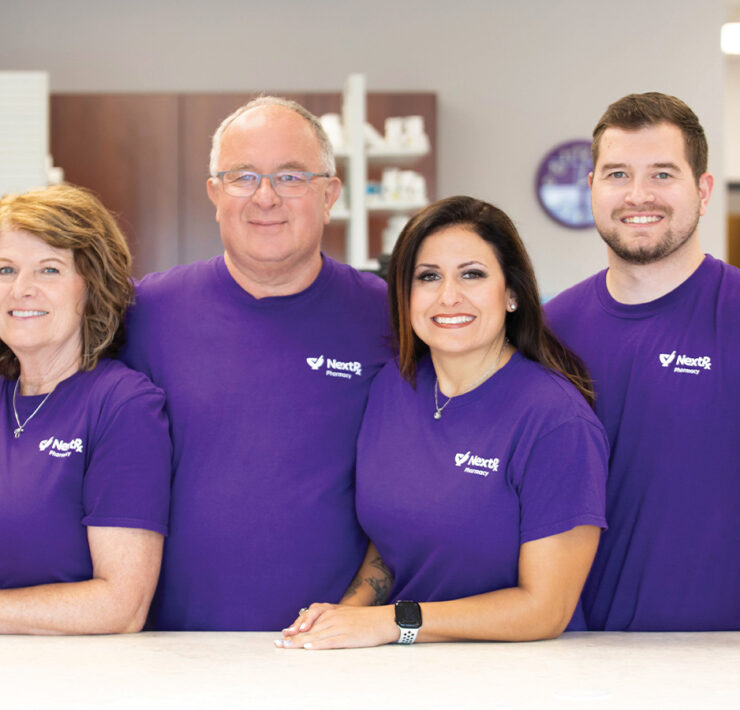Simulation Center Boosts Expertise
- This story originally appeared in the March 2024 innovation and technology issue of COMO Magazine.
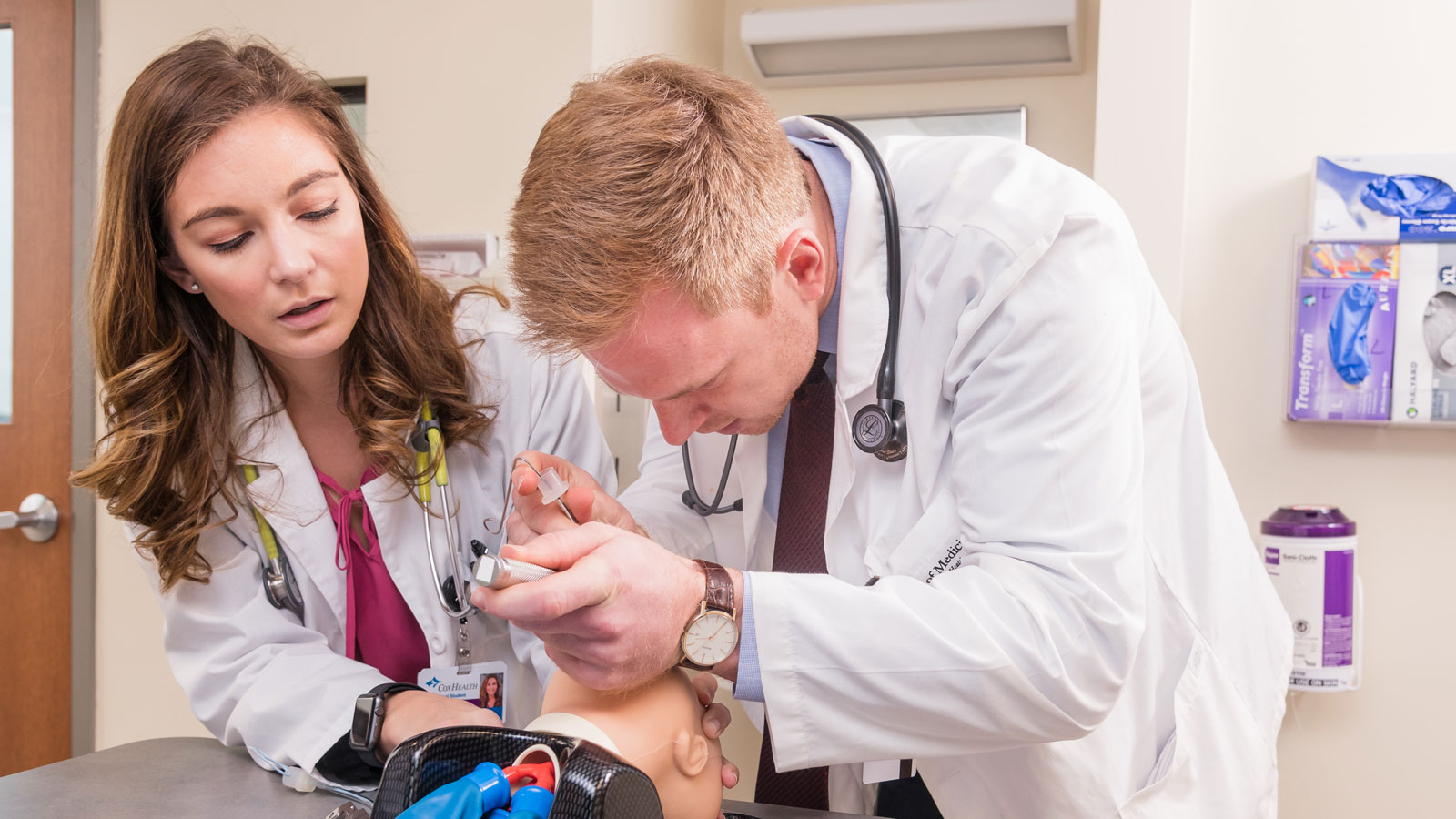

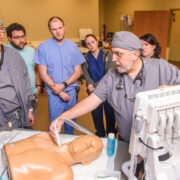
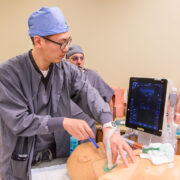
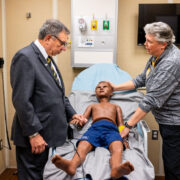 +1
+1 Simulation Center Boosts Expertise
Simulation Center Boosts Expertise
Simulation Center Boosts Expertise
Simulation Center Boosts Expertise
Innovative education and technology helps train medical professionals and improve patient care.
Learning how to treat patients — regardless of age, diagnosis, or special needs — is a necessary but complicated endeavor. Luckily, Mizzou’s Shelden Clinical Simulation Center provides training and technology to assist medical students and active professionals in achieving that goal.
The center got its start in 2008, says Dena Higbee, the director of simulation services for Mizzou’s School of Medicine.
“At that time, simulation was coming about throughout the country, but not in an organized fashion here at the university, and that’s when they decided to open up a brand new facility here, to be able to do all modalities of simulation,” Higbee says. “The modalities are primarily what we call simulated participants, which are real people from the community, who are trained and paid to portray patients. So, they get a script, which they memorize, and that’s how our students learn to do physical exams, take histories, break bad news, and have difficult conversations.”
Another element of the Center is the use of a “task trainer,” which is a simulation mannequin that’s built to provide both students and healthcare professionals the opportunity to perform a variety of medical procedures while receiving feedback in real-time. The “task trainers” simulate the behavior of real human patients: they do everything from breathing to having a pulse to reacting to various medicines.
“[Our students] use these trainers to learn procedural skills, like how to start IVs, how to clear an airway, how to insert a catheter — all kind of things that might happen to a patient,” Higbee explains.
Higbee spent fifteen years of her career watching the technology grow and evolve, and she’s now been with the Shelden Center from the start. Being part of that process has given her both perspective and knowledge, through her education, experience, and the different leadership roles she’s filled. All of those factors have helped her succeed in her position.
An average day in Higbee’s life is generally centered on management, she said.
“I’m always thinking about the best use of resources, whether it be space, employees, or our finances, and trying to make sure we have the best training materials possible,” Higbee notes. “I also work very closely with the faculty and their schedules – figuring out what their learning objectives are, and what kind of simulations we can use to meet those learning objectives, and figuring out how to use those simulations effectively.”
The Shelden Center operates to help prepare both students and active healthcare professionals for challenges they might face. The team works with Mizzou faculty and students — along with nurses and doctors — to create real-life simulations to ensure the best possible standard of care.
“We work in service of the learning opportunity. We’re kind of the wizard behind the curtain,” Higbee laughs. “We can focus on making the simulation happen, and the faculty can really focus on being the content experts, and doing assessments, and focus on their learning objectives.”
Shelden Clinical Simulation Center — MU School of Medicine
[email protected]
medicine.missouri.edu/centers-institutes-labs/shelden-simulation-center



